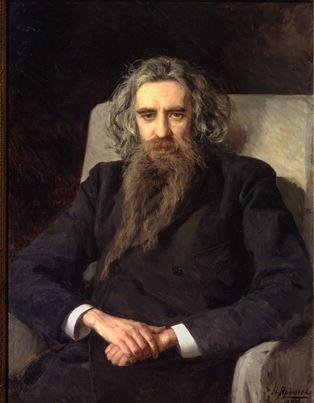Vladimir Sergeyevich Solovyov

🧠 Who Was Vladimir Sergeyevich Solovyov?
Vladimir Solovyov (1853–1900) was a philosopher, theologian, and poet, widely recognized for his contributions to the philosophy of religion and Russian religious thought. He tried to reconcile Eastern Orthodox Christianity with modern philosophical and scientific ideas. Solovyov was deeply concerned with the tension between faith and reason and sought to find a way in which Christianity could interact meaningfully with modernity.
🌟 Key Ideas in Solovyov's Thought
-
The Unity of Being:
-
Solovyov believed in a unified reality, where all of existence, both material and spiritual, is part of a single divine whole. He called this the "unity of being" or "all-unity" (Vseedinstvo).
-
This view contrasts with the dualism that often separates the sacred from the profane, the spiritual from the material.
-
-
Sophia (Divine Wisdom):
-
One of Solovyov’s most important contributions to theology and philosophy was his concept of Sophia, which he interpreted as Divine Wisdom or the feminine aspect of God.
-
He believed Sophia to be the cosmic principle of order and beauty, bridging the created world with the Creator. Sophia was seen as both transcendent and immanent, symbolizing divine wisdom and love.
-
For Solovyov, Sophia was essential for understanding the relationship between God, humanity, and the world.
-
-
The Role of Religion in Modern Life:
-
Solovyov argued that religion should not be separated from life but should be integrated into the spiritual, intellectual, and social aspects of society.
-
He believed that religion needed to find a balance between faith and modern rational thought. Solovyov was keen on defending Christianity while acknowledging the need for it to evolve in response to modern intellectual developments.
-
-
Christology:
-
Solovyov developed a theological system that placed Christ at the center of everything. He believed that Christ was the key to understanding both humanity and the universe.
-
For Solovyov, the incarnation of Christ was the divine manifestation that made it possible for humans to reconnect with the divine and understand the unity of existence.
-
-
The Russian Religious Philosophy:
-
Solovyov was critical of the Western rationalist tradition and instead sought a philosophy rooted in the Christian faith but also in dialogue with modern culture.
-
He believed that Russia had a unique spiritual mission to contribute to the world, particularly through its Orthodox Christian traditions.
-
Solovyov is often considered a precursor to later Russian philosophers and writers, including Dostoevsky and Berdyaev.
-
📖 Notable Works
-
"The Crisis of Western Philosophy" (1874):
-
A critique of the rationalism of Western European philosophy, arguing that it had lost touch with spirituality and mysticism.
-
-
"The Meaning of Love" (1892):
-
In this work, Solovyov explores the philosophical and theological significance of love, connecting it with both human experience and the divine.
-
-
"The Russian Idea" (1899):
-
In this work, Solovyov discusses the spiritual and philosophical mission of Russia in the world, focusing on Orthodox Christianity and the idea of Russia as a spiritual center for the world.
-
-
"Three Conversations" (1899):
-
A series of dialogues in which Solovyov reflects on the nature of history, the spiritual mission of Russia, and the role of Christianity in a modern world.
-
🌌 Influence and Legacy
Solovyov's work deeply influenced Russian Symbolist poets and writers like Andrei Bely and Vladimir Nabokov, as well as the Russian Silver Age in literature and art. His ideas on Sophia, unity, and the fusion of spirituality with modernity continue to resonate with contemporary thinkers, especially in the realms of mysticism and integral philosophy.
Solovyov is also seen as a precursor to later Russian religious thinkers like Nikolai Berdyaev, who expanded on Solovyov's ideas regarding the intersection of Christianity and modernity.
✨ Key Concepts for Further Exploration
-
Sophia and Feminine Divine: Solovyov's approach to Sophia could be explored in terms of modern feminist theology and the role of the feminine divine in religious traditions.
-
Russian Messianism: Solovyov's vision of Russia's spiritual mission and its role in the world is a topic that has been discussed and debated in both political and philosophical circles.
-
Philosophical Mysticism: Solovyov's synthesis of mysticism and philosophy can be compared to other thinkers like Teilhard de Chardin, Hegel, or Berdyaev, who similarly sought to reconcile spirituality and reason.

